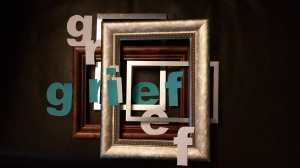A few weeks after my husband’s death, a woman I hadn’t seen in years suggested I meet with a grief therapist. “My mom went to counseling after her husband died,” my friend told me, “and it made a world of difference for her. Counseling helped her cope.”
My friend’s sincere concern (and attempted consolation) touched me. I felt the kindness of her intention, but her words scraped at already raw emotions. I balked.
I may have nodded as she spoke, but I stepped back, putting a wider space between us while my inner voice screamed over her advice:
I don’t need a therapist, thank you very much, and this sadness isn’t something I need to fix. I don’t want counseling — I want my husband back. I want my kids’ father back! How dare you — who still have your husband — tell me someone can fix my mental health? He’s only been dead a month — am I supposed to be okay with that?
My husband was dead. Talking it out with a stranger wouldn’t return him to life. It wouldn’t return me from my new, unwelcome status as a single parent to my familiar role as a married, stay-at-home mom.
But before I could put words to that inner indignation, another old acquaintance approached who’d not yet heard THE news. “Hi, Teresa. How’s your husband doing? Where is he today?”
I opened my mouth to answer, not knowing what I’d say.
Sometimes, back then, when grief was new and raw and all-consuming, I couldn’t allow myself to utter the horrible words, “He’s dead.”
Other times, I couldn’t stop myself from blurting, “My husband died.” (Looking back, I pity the poor store clerks, fellow shoppers, and service professionals I encountered.)
So how did I answer the second woman’s innocent, caring question that day — on the heels of hearing another’s advice?
A wordless sob. I spun and — sobbing louder — ran as fast as I could.*
I ran from the idea of counseling as much as I ran from the need to escape before really making a scene.
For more than a year after that day, my friend’s suggestion rattled around in the back of my mind, usually associated with feelings of flight. Meanwhile, I met and networked with many, many fellow widows and widowers and began networking with others who’d lost loved ones as well. From time to time, these peers mentioned grief counseling, and how glad they were they’d participated. I always thought, “Good for them … but not for me.”

Counseling reframes grief, but it doesn’t remove it. (Photo by Teresa TL Bruce, TealAshes.com)
Yet my friend’s words echoed: Counseling helped her cope … Counseling helped her … Counseling helped …
When I was ready, I realized it might do me some good. Even then, it took a couple of months more (and several dialed hang ups) to schedule myself an appointment.
It did help. It didn’t take away or diminish my loss, but it empowered me with tools to reframe my life’s “new normal.”
(Thank you again, my friend, for the gentle suggestion you gave me that day more than five years ago. I remain grateful for it!)
Before you gently suggest grief counseling or therapy for bereaved friends, keep in mind:
- Grieving is harder than it looks, so avoid criticism or commentary that implies your friends are mourning and/or coping the “wrong” way. (Of course, if they are doing or about to do something harmful to themselves or others, stepping in is essential — just as it would be for any of your friends who aren’t grieving!)
- Grieving takes much, much longer than you think. (Hint: Year two is often more difficult than the first 365 days after a death.) Please, remember they are still in mourning long after the funeral — and reach out to them.
- Sometimes it helps to enlist a professional, but until mourners are ready, counseling won’t help.** If you think it would benefit your friends, gently mention the idea once. Wait a couple of months before you bring it up again. Then wait another couple of months.
- Remember: Grief is an emotional state born of love and triggered by loss, but it has real, physical components, too. Grief can’t be cured or fixed or treated any more than you can cure or fix the love at its roots. But coping tools can (eventually) assist in adjusting to it.
- Like anything new, it takes time to become proficient. Never, ever, ever imply to a griever they should be (or get) “over it by now.” Don’t say that. Ever. No, never. (Can you tell how strongly I feel about this?)
In the meantime, let your friends know that whether or not they seek a professional’s help in learning to manage their grief, you’ll stand by them — no matter what.
___
*I ran as fast as a woman with nerve damage in her ankle could “run” away while clomping along with a cane. (But that’s a whole different story of life back then…)
**See the Mayo Clinic’s page on Complicated Grief for information on warning signs that your friend may need professional help adjusting after a loss. The symptoms listed are normal for grievers (and even to be expected) during the first six months, according to that website, but may also last much longer. However, if they do not diminish of if they intensify over time, enlisting professional help may be necessary.

